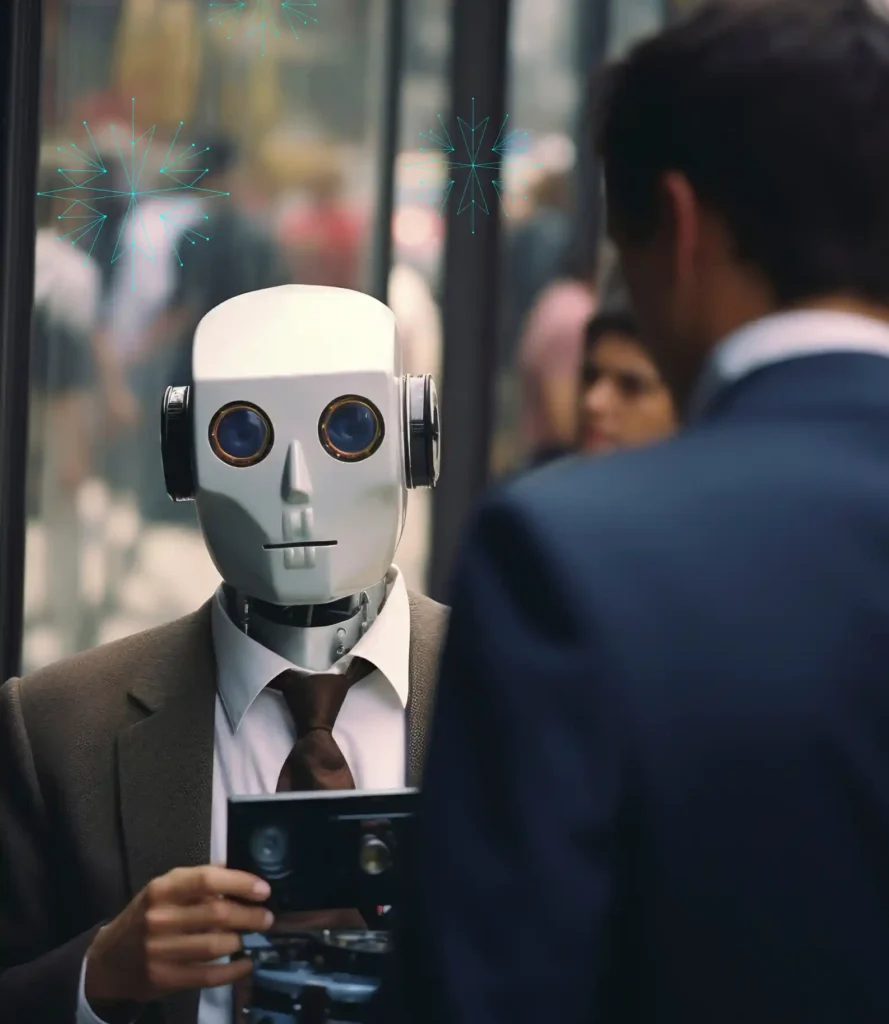Are Robots Your Next Digital Marketing Customers? The Future of AI-Driven Engagement.

Digital marketing has always been about targeting the right audience, crafting compelling messages, and driving engagement. But what if the next big audience isn’t human at all? With the rise of AI-driven technologies, chatbots, virtual assistants, and automated systems are increasingly consuming, processing, and even responding to digital content. Could robots become the next major consumers in digital marketing? Let’s explore this fascinating evolution and what it means for businesses.
The Rise of AI-Driven Consumers
From Siri and Alexa to GPT-based chatbots and algorithmic content analyzers, AI is playing an active role in the digital ecosystem. These systems scan, interpret, and even generate content based on their training data and real-time interactions. While they are designed to assist humans, their ability to independently interact with digital marketing materials is expanding.
Some real-world examples include:
- AI-Powered Chatbots: Businesses use AI chatbots to interact with website visitors, answer queries, and even make recommendations.
- Search Engine Algorithms: Google’s AI-driven RankBrain analyzes content relevance, keyword intent, and user experience to rank web pages.
- Voice Assistants: People increasingly rely on AI-driven voice assistants like Alexa and Google Assistant to search for products and services.
These AI-driven “consumers” don’t just process information; they shape human decision-making by filtering, recommending, and prioritizing content.
How Robots Are Changing Digital Marketing Strategies
If AI-driven systems are engaging with content like human users, digital marketers must rethink their strategies. Here’s how AI is transforming marketing efforts:
1. SEO for AI Algorithms
Search engines are becoming more sophisticated, using AI to understand content better than ever before. Marketers must optimize for natural language processing (NLP) and semantic search rather than just keyword stuffing.
2. Content Personalization for AI-Driven Curation
Recommendation engines like Netflix, YouTube, and Amazon use AI to suggest content based on user behavior. Crafting content that AI recognizes as highly relevant can improve visibility and engagement.
3. Conversational AI as a Customer
AI-powered chatbots are increasingly handling transactions, scheduling services, and making automated purchasing decisions. Businesses need to tailor their marketing to attract both human and AI decision-makers.
4. Voice Search Optimization
With the rise of voice search, marketers must optimize content for conversational queries, as voice assistants interpret search requests differently than typed searches.
5. AI-Generated Content & Interactions
AI isn’t just consuming content; it’s generating it. Tools like ChatGPT, Jasper, and Bard are producing blogs, social media posts, and product descriptions. Marketers should ensure their brand voice remains distinct in an era where AI-generated content floods the digital space.
The Challenges of Marketing to AI
While AI-driven engagement presents new opportunities, it also raises challenges:
- AI Filtering Biases: Search engines and social platforms use AI to filter content. If your content doesn’t align with AI’s preferences, it may not reach human audiences.
- Authenticity vs. Automation: Over-reliance on AI-generated content can dilute brand authenticity, making it harder to stand out.
- AI as Gatekeepers: Instead of directly marketing to people, brands must now appeal to AI-driven algorithms that determine what content gets seen.
The Future: AI and Human Coexistence in Digital Marketing
Rather than seeing AI as a replacement for human customers, marketers should view it as an amplifier. AI-driven engagement will continue to evolve, shaping how content is discovered, consumed, and acted upon.
The key to success lies in:
Adapting to AI-driven search and recommendation engines
Balancing AI-generated content with human creativity
Optimizing for both human and machine readability
Conclusion
AI is no longer just a tool for marketers; it’s becoming a participant in the digital marketing ecosystem. While robots may not be “buying” products in the traditional sense, they are actively influencing purchasing decisions, filtering content, and shaping user interactions. The question isn’t whether robots are your next digital marketing customers—it’s how well you’re optimizing for them.
Are you ready to market in an AI-driven world?